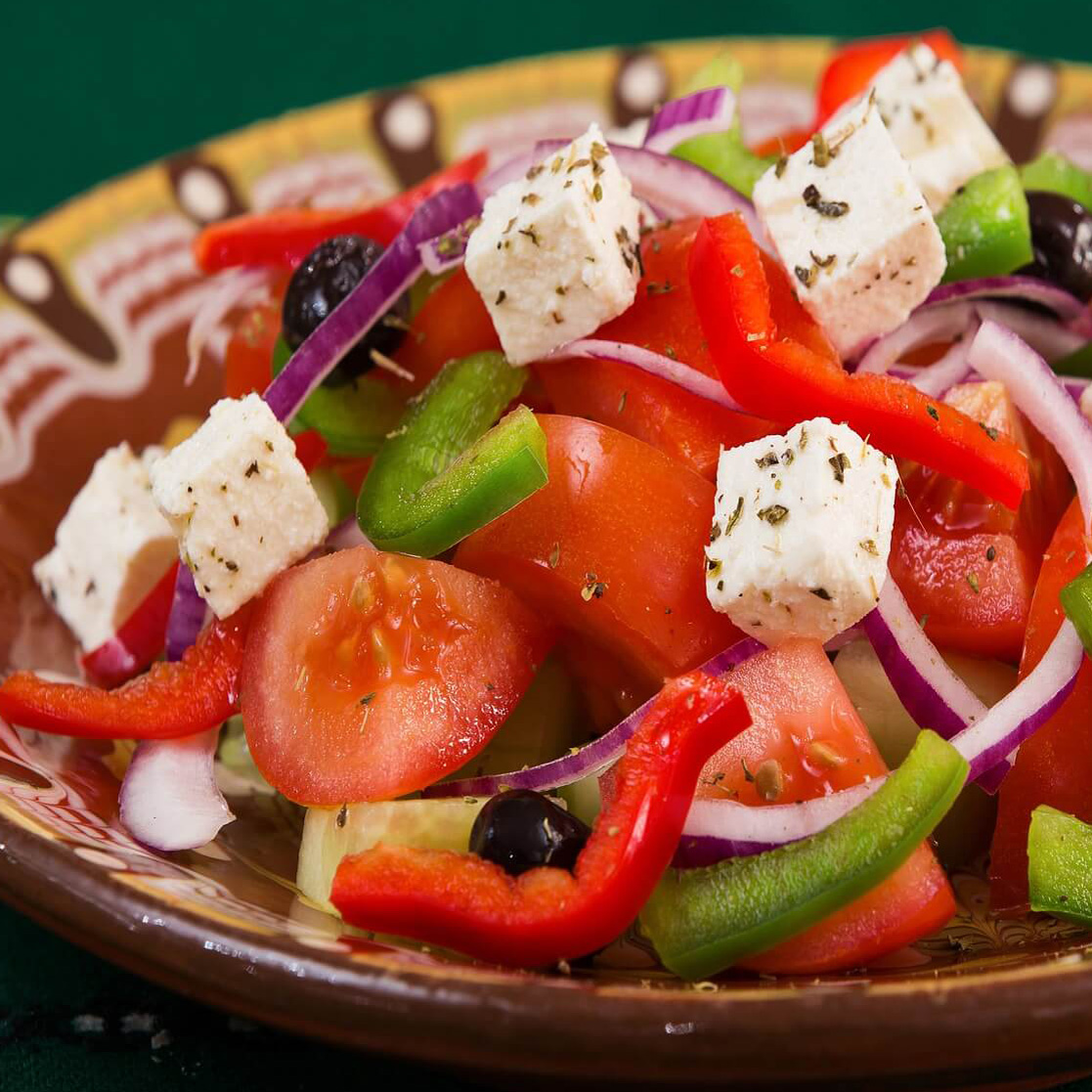
What is the Mediterranean Diet?
The Mediterranean Diet is a diet based on the traditional cuisine of countries bordering the Mediterranean Sea. It is typically high in vegetables, fruits, whole grains, beans, nuts and seeds, and olive oil. The main components of the Mediterranean Diet include daily consumption of vegetables, fruits, whole grains, and healthy fats. Furthermore, weekly intake of fish, poultry, beans and eggs, and a moderate portion of dairy products are components of this diet. The intake of red meat should be limited [1].
Mediterranean Diet Benefits
Research suggests that the benefits of the Mediterranean Diet improve among other things weight loss, better control of blood sugar levels and reduced risk of diseases like cardiovascular diseases, stroke, but also mental illnesses like depression. It also has been associated with reduced levels of inflammation, which is a risk factor for heart attack and stroke, and also with a reduced risk of Alzheimer’s disease [1]. Additionally, this diet reduces the risk for cancer with its omega fatty acids, fiber and antioxidants. It also improves your mood and helps with distress and difficulties to relax [2].
Mediterranean Diet Meal Plan
So, how can you successfully integrate a Mediterranean Diet into your life? Here are some suggestions [2]:
- Switch your oil – use healthy fats
- Eat more fruits and vegetables
- Help yourself with whole grains
- Eat more seafood
- Reduce red meat
- Spice it up
- Snack nuts
- Sip (a little) wine
- Savor every bite
Switch your oil – use healthy fats
If you’ve been using vegetable oil or coconut oil for cooking, make the switch to extra-virgin olive oil. Olive oil is rich in monounsaturated fatty acids, which may improve HDL cholesterol, the ‘’good-type’’ of cholesterol. You can use olive oil for homemade salad dressings and vinaigrettes. Put it on finished dishes like fish or chicken to boost flavor. And switch butter for olive oil in mashed potatoes, pasta, and more.
Eat more fruits and vegetables
A good way to do this is to eat one serving at snack time, like crunching on bell pepper strips or throwing a handful of spinach into a smoothie, and one serving with dinner. Aim for at least two servings per day. More is better. At least three servings can help you to combat stress.
Help yourself with whole grains
Try to experiment with “real” whole grains that are still in their “whole” form and haven’t been refined. For example, quinoa is cooked in just 20 minutes, making it a great side dish for your meals. Barley is full of fiber and it’s filling. For breakfast and on a cold winter morning a hot bowl of oatmeal is a perfect choice. Look for the term “whole” or “whole grain” on the food package and in the ingredient list – it should be listed as the first ingredient. If it‘s too hard for you to make the switch from your old refined favorites, try to make an entry into whole grain by using whole-grain blends of pasta and rice or mixing whole grain products half-and-half with refined ones.
Eat more seafood
The main protein source (besides vegetables, whose calories often come from protein) in the Mediterranean Diet is fish. In particular, this diet emphasizes fatty fish like salmon, sardines and mackerel. The benefit of these fatty fishes is that they are rich in heart- and brain-healthy omega-3 fatty acids. But lean fish that have less fat is still good because they provide a good source of protein. For a start, you can designate one day each week as a fish night. An easy way to put dinner on the table is to cook fish in parchment paper or foil packets.
Reduce red meat
Take fish, poultry or beans instead of red meat. But if you eat meat, make sure it’s lean and keep the portions small.
Spice it up
Herbs and spices boost flavor in your meal and lessen the need for salt.
Snack nuts
Nuts are another main component of the Mediterranean Diet. Grabbing a handful, whether it is almonds, cashews or pistachios, can make for a satisfying on-the-go snack. Nuts contain more fiber and minerals, such as potassium, than processed snack foods. Studies found that if people replaced their standard snack (like cookies or chips) with almonds, their diets are lower in empty calories, added sugar and sodium.
Sip (a little) wine
The good news: You can drink wine!. People who live along the Mediterranean Sea are not known to shy away from wine. But that doesn’t mean you should pour it at your leisure.
Dietitians and experts who research the Mediterranean Diet advise women to stick to a 3-ounce serving, and men to a 5-ounce serving, per day. When you do sip, try to do it with a meal – even better if that meal is shared with loved ones. If you usually don’t drink alcohol, you shouldn’t start drinking just for this diet.
Savor every bite
The Mediterranean Diet is more like a lifestyle than a diet. Savor what you’re eating – instead of eating your meal in front of the TV, sit down at the table with your loved ones. It‘s also important to eat slowly so it allows you to tune in to your body’s hunger and fullness signals [1].
Mediterranean Diet Food List
Eat: Vegetables, fruits, nuts, seeds, legumes, potatoes, whole grains, whole grain bread, herbs, spices, fish, seafood, yoghurt and extra virgin olive oil.
Eat in moderation: Poultry, eggs, cheese
Eat only rarely: Red meat
Don’t eat: Sugar-sweetened beverages, added sugars, processed meat, refined grains, refined oils and highly processed foods [3].

Mediterranean Diet Meals
Breakfast ideas: Oatmeal, natural Greek yogurt with honey, berries, nuts and seeds, whole wheat bread with olive oil and herbs, homemade smoothie
Lunch ideas: Salad with nuts and wild fish, whole grain veggie sandwich with hummus and vegetable sticks, whole grain bowl of quinoa or barley with raw or steamed vegetables and a yoghurt sauce
Snack ideas: Nuts, dried fruits, raw fruits or vegetables, berries
Dinner ideas: Pizza with whole wheat dough, vegetables and feta cheese, grilled fish with salad and avocado



